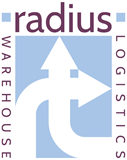With the world turned on its heads at the moment on a global scale, COVID-19 is forcing businesses to reassess their supply chain. Particularly important for those companies that import and export products internationally, the way in which our cargo is moving across borders is on a constantly moving conveyor belt. Research into how long the virus can survive on different surfaces mixed with a desperate need to prevent cross-contamination have seen the customs process change during times of chaos – in both financial and operational ways. So how can you continue your supply chain while riding the wave that this current pandemic is presenting to us?
Monitor the impact of tariffs
Supply and demand are fluctuating for the vast majority of products – both those we deem to be essential and those we don’t. To maintain consistency in your supply chain, you need to understand how this change impacts your expected import tariffs. If your business supplies a wide variety of different product types, this information allows you to adjust RRP and ensure costs are covered, regardless of these changes. There are global trade technology platforms that pair with analysis software, allowing you to forecast these changes. So, instead of being reactive, you can begin to plan and structure your pricing structure for the short term.
Pay attention to the small print
Everything about the coronavirus pandemic has moved at lightning speed. And the same can be said for last-minute changes to exclusions and modifications to the small print. This information may be specific to the country you’re important or exporting through and can also be related to the product at hand. The world is shifting and products that once fell into one category are now assigned to another. Understanding this gives you the tools to best reallocate your stocking budget, ensuring customers needs can still be met.
Be scrupulous about the details
Import into and from China is, understandably, some of the most impacted by the current situation. And, for this reason, the specifications in place regarding imports of this nature are being put under a fine microscope. The small print has changed to accommodate the increased risk of cross-infection and, therefore, shipments that previously would have passed through quickly can now find themselves held back. A reactive approach here is to be more rigorous with your customs filings. Analyse the information given to you in detail. Ensure you read all of the terms and conditions provided to you before double-checking them against reputable sources.
We also advise that you have a process in place to deal with delays, should they happen. Clear communication with your customers, client base and customs will strengthen the integrity of your business.
Radius Warehouse and Logistic Services has over 20 years of experience in freight forwarding and customs logistics internationally. We can support your business to maintain productivity during the COVID-19 crisis. If you have any questions or would like to discuss a specific issue, please get in contact with the team here today.



